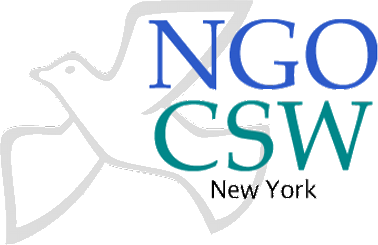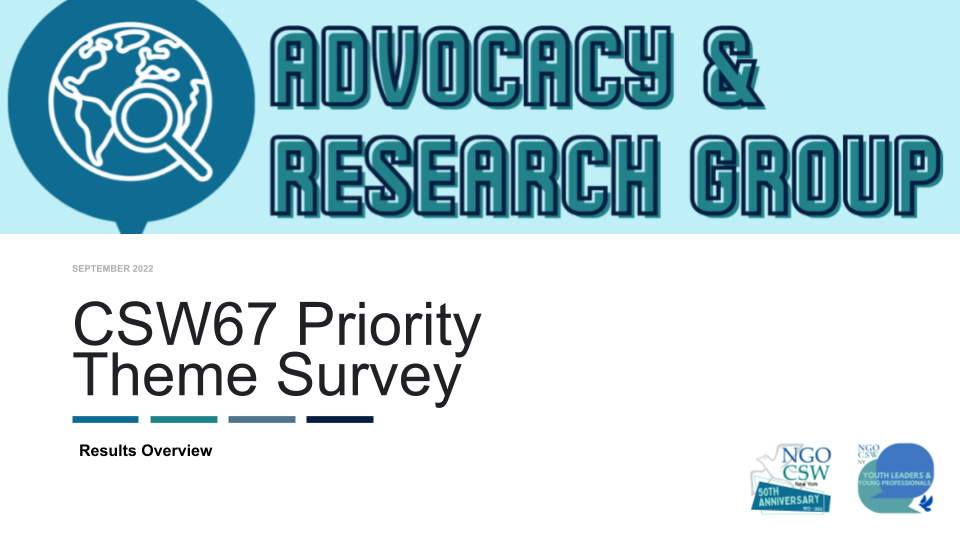
01
Digital Education & STEM
Invest in and strengthen gender-responsive policies, programs and laws that prioritize girls and women in all their diversity. Eliminate the digital gender gap by providing them with critical digital fluency skills, ranging from basic digital literacy to advanced technical skills in science, technology, engineering and mathematics (STEM) and in information and communications technology (ICT). Read more.
02
Impact of Technology on Women's Human Rights
Develop international standards and guidelines to address and eliminate the risks to the digital privacy and safety, autonomy, and dignity of women and girls in all their diversity. Women and girls of all ages are particularly at risk for online abuse, cyberbullying and gender-based violence stemming from the pervasive sexism and misogyny on digital platforms which thwart their fundamental human rights. Read more.
03
Access to Technology for Rural Communities, Older Women, and Women with Disabilities
Ensure universal access to essential and gender inclusive public and private digital infrastructure including electricity and frontier data and Artificial Intelligence (AI) innovations to bridge existing digital divides. Guarantee access to digital technologies in rural areas and ensure equal opportunity particularly for older women and women with disabilities to be empowered with ICTs, through not only physical access and skills development, but also design that respects the needs of all people following consultation with those directly affected. Read more.
04
Financial Resources for Women for Technology
Enhance official development assistance commitments and improve public finance and investments, as well as leverage private sector partnerships, for universal, affordable, equal and unfettered access to digital technologies for women and girls in all their diversity. This can include, but is not limited to, free device distribution, creation of affordability schemes, and affordable data plans. Read more.
05
Youth & Adolescents
Engage with girls and young women in the formulation, design and development of adequately financed policies and programs that prioritize digital literacy skills, online safety, and STEM education for girls, young women and marginalized groups. Address unequal gender norms, policies and laws and lack of infrastructure that hinder girls’ access, engagement and safety with digital tools, ICT and STEM education. Read more.
Community Survey on the CSW67 Priority Theme
This year, we are focusing on consulting with our global, grassroots community to understand their lived experiences that pertain to the CSW67 theme on innovation and technological change.
To that end, the ARG sent a survey to our constituency to collect their input about the priority theme and their community's experience with technology.
Read the results of the survey for a regional breakdown of the data and the community's top concerns relating to digital technology and women's rights and empowerment.
- Ali Foote, NGO CSW/NY
- Alena Popova, Wilson Center
- Beth Blissman, Loretto Community
- Carla Cordova, NGO CSW/NY
- Devan Zingler, NGO CSW/NY
- Fernanda Vazquez, Red Latinoamerica y Caribeña de Jóvenes por los Derechos Sexuales y Reproductivos (RedLAC)
- Gillian D'Souza-Nazareth, Red Dot Foundation
- Hawa Dunor Varney, Women in Agriculture for Sustainable Development
- Houry Geudelekian, Unchained At Last
- Julianna Larock, International Federation of Social Workers
- Julie Rajan, Vital Voices
- Lana Finikin, Sistren Theatre Collective and Huairou Commission
- Linda Witong Abrahm, Soroptomist International
- Lois Aduamoah-Addo, WILDAF Ghana
- Mabel Bianco, Fundación para Estudio e Investigación de la Mujer and NGO CSW LAC
- Marina Pisklakova-Parker, Vital Voices
- Mercy Njili, MIFALI
- Micaela Tompkins, NGO CSW/NY
- Nancy Makeoh, Women for a Change, Cameroon
- Pamela Morgan, Zonta International
- Oriana Bracaglia
- Rahel Beigel, Women's Refugee Commission
- Rosa Lizarde, Feminist Task Force
- Samreen Shahbaz, Asia Pacific Forum on Women, Law and Development
- Sandra Enih, Moving in Feminist with Adolescent Leaders Involved (MIFALI)
- Shaila Rao Mistry, Graduate Women International & Women Graduates USA and STEM Institute
- Susan O'Malley, International Federation of Business and Professional Women
- Terry Ince, CEDAW Committee of Trinidad and Tobago


